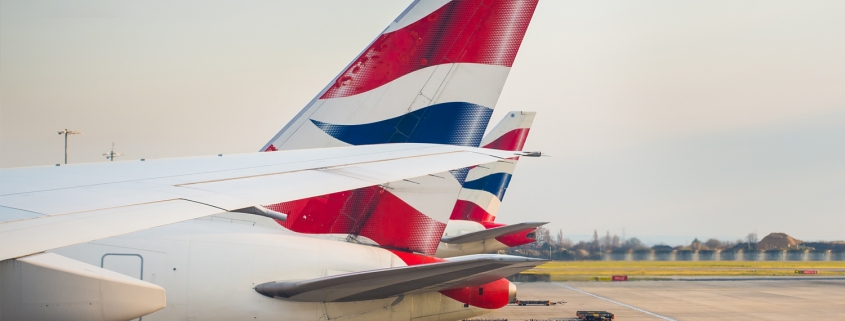Demand Increasing at Slot-Coordinated UK Airports
Anne Correa, mba’s Director of Airline & Airport Services, explores how slot-coordinated airports in the United Kingdom manage their coveted assets and what airlines are willing to do to gain access.
Landing and departure slots are some of the most important assets in the aviation industry. When the demand to land or depart from a specific airport exceeds the infrastructure’s capacity, there is a value in the slots. IATA defines[1] airports with demand greater than supply as Level 3, or slot-coordinated. Exactly who is able to take advantage of the value attached to these slots depends on the jurisdiction in which the slots reside.
Which are the UK’s slot-coordinated airports?
The United Kingdom currently has eight Level 3 airports.[2] London Heathrow (LHR) is the best-known Level 3 airport in the UK, both within the country and the world, because it is one of the largest airports by passengers globally and has operated at full capacity for so long. It comes as no surprise that aircraft movement growth at LHR is 0% over the last three years. Heathrow simply cannot increase the number of movements with the current infrastructure. Airlines must increase the size of their aircraft being used at Heathrow or consider alternative airports. As air traffic growth puts increased pressure on the existing infrastructure, other airports within the region are seeing an increased interest in their slots.

Source: UK Civil Aviation Authority (CAA), OAG Schedules, Airport Coordination Limited (ACL) for FY 2017 (LHR, LGW, MAN, STN, LTN, BHX, LCY, BRS)
How do airlines acquire slots at these slot-coordinated airports?
The traditional way to acquire slots is to go through the slot coordinator, Airport Coordination Limited (ACL), at the IATA slot conferences held twice a year. At these meetings airlines submit requests for certain times during the season and negotiate with the airport to finalize their schedules.
Alternatively, airlines are increasingly utilizing the secondary market to acquire slots. The airlines must still formally trade or swap these slots through ACL, but the negotiation can be directly between the respective airlines. The UK is one of the few countries that currently allow for a secondary market. In other jurisdictions, if an airline chooses to stop operating a slot, that slot will be returned to the authorities for redistribution. In the UK, the usage rights of the slot may be passed from one airline to another, at the value agreed upon between the two parties.

Source: Airport Coordination Limited (ACL) as of July 2018
Led by Heathrow, more Level 3 airports are seeing an increase in their slots being traded outside of the bi-annual slot conference. Since 2008, Heathrow has seen approximately 35 slot trades on average per year. Slots at Gatwick (LGW) are trading more frequently as airlines have looked for alternatives to Heathrow. In 2016, we saw the first slot trade at London City (LCY) and in 2017, Luton (LTN) and Stansted (STN) recorded slot trades for the first time.
Some airlines have opted to acquire competition in order to procure additional slots in slot-coordinated airports. In 2007 easyJet bought GB Airways in part for its Gatwick slots. International Airlines Group (IAG) acquired British Midland International (BMI) similarly in part for its Heathrow slots in 2012.
Which airlines hold these valuable slots at UK’s Level 3 airports[3]?

Landing and departure slots are some of the most important assets in the aviation industry. mba expects a demanding road ahead for slot transactions as air traffic growth continues to outpace the available infrastructure in the United Kingdom.
[1] World Slot Guidelines
[2] Bristol Airport (BRS) is Level 3 for night and night shoulder movements 2200 to 0559 UTC from S18.
[3] Full year 2017 data for American Airlines, AerLingus, Blue Air, BMI Regional, British Airways, CityJet, EasyJet, Eurowings, flybe, Jet2.com, KLM, Lufthansa, Luxair, Monarch, Norwegian, Pegasus Airlines, Ryanair, SWISS, Thompson Airways, Virgin Atlantic, Wizz;
Source: OAG (Monarch data included for accuracy however the airline went bankrupt in October 2017)


